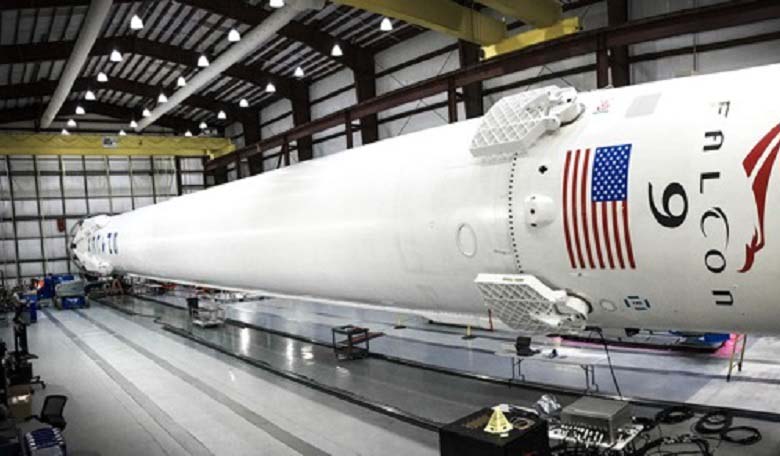The anticipated launch of SpaceX’s Falcon 9 rocket, its first rocket launch since its unmanned Dragon cargo ship destined for the International Space Station (ISS) exploded after liftoff six months ago, is due for lift off later this evening. The rocket is now scheduled to launch at 8:33 pm ET time Monday (0133 GMT Tuesday) from Cape Canaveral, Florida, said the California-based company.
One key aim of SpaceX’s mission, is after lift off, to land the first stage of its Falcon 9 rocket in an upright position on solid ground for the first time. "If successful, this test would mark the first time in history an orbital rocket has successfully achieved a land landing," SpaceX said in a statement. Monday "has a 10 percent higher chance of a good landing,” announced internet tycoon Elon Musk on Sunday afternoon, several hours before its initially planned launch.
Falcon 9 is a two-stage rocket and the first to be completely developed in the 21st century. Falcon 9 was designed from the ground up for maximum reliability and is manufactured by SpaceX for the safe transportation of satellites and the Dragon spacecraft into orbit. The Falcon 9 poised for launch Monday is 30 percent stronger than previous versions, said SpaceX and while landing safely, is obviously essential for a successful mission, the primary goal of this forthcoming mission is to deliver 11 satellites to low-Earth orbit for ORBCOMM, a global communications company.
The liftoff will mark an important milestone for SpaceX following the June 28 accident, when just over two minutes after launching from Cape Canaveral, its Falcon 9 rocket exploded with a blast that also destroyed its Dragon cargo ship loaded with supplies for the astronauts living in space. This unfortunate incident occurred just eight months after a space station-bound rocket belonging to competitor Orbital blew up over a Virginia launch pad.
SpaceX is not alone in the quest to make rockets as reusable as commercial airplanes instead of the present-day scenario, whereby rocket components costing many millions of dollars are jettisoned as debris after takeoff. Last month, Blue Origin, a privately-funded aerospace company set up by Amazon.com founder Jeff Bezos, also announced a successfully landing of the New Shepard rocket after a suborbital flight.
As the competition heats up, both companies are set to prove that boosting efficiency and reducing costs in modern aerospace is achievable with the creation of a new generation of complex machines that can be re-used after launch.











